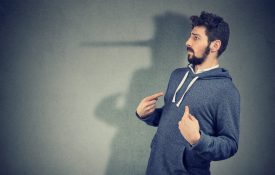-
Herschel W. Leibowitz Dies at 85; Studied Night Vision’s Tricks
The New York Times: Herschel W. Leibowitz, a Penn State University psychologist who was among the first scientists to explore how the mind can misinterpret what the eye sees at night, a phenomenon that contributes to traffic accidents, died on Sunday in State College, Pa. He was 85. His death was confirmed by his granddaughter Amy Milgrub Marshall. Dr. Leibowitz lived in State College. Read the whole story: The New York Times
-
Mirror Movements Might Reflect ADHD in Kids
ABC News: The cause of attention deficit hyperactivity disorder, which affects roughly 5.4 million kids in the United States alone, remains unknown. But new research into "mirror movements" sheds light on the mysterious neurobehavioral disorder and might even aid in its diagnosis. Read the whole story: ABC News
-
Behind every successful man is a woman keeping out of the way
The Daily Mail: The secret of success may be a spouse who stands at your side - but keeps out of the way, psychologists claim. Whether you are the Prime Minister, or simply trying to stick to a diet, the best support comes from those who offer practical help without making a fuss. Read the whole story: The Daily Mail
-
When helping doesn’t help – having support encourages procrastination, says study
The Vancouver Sun: A supportive partner can often give people a good kick in the rear to get motivated to accomplish their goals, but a new study suggests that too much cheerleading actually may have a detrimental effect. The study from two U.S. universities looked at "self-regulatory outsourcing," the notion that thinking about how other people can help you achieve a goal can actually decrease your motivation to focus on that task yourself. Read the whole story: The Vancouver Sun
-

Lie Detection: Misconceptions, Pitfalls, and Opportunities for Improvement
Researchers discuss some of the common misconceptions about people proficient in the art of deception, and reviews the shortcomings of commonly used lie-detection techniques.
-
Tots fearless when facing spiders, snakes, study suggests
MSNBC: Like the girl in that old Jim Stafford song, most people don’t like spiders and snakes. But according to new research involving infants and children, we don’t start off this way. According to Vanessa LoBue, assistant professor of psychology at Rutgers and co-author of a recent study in Current Directions in Psychological Science, spider and snake phobias are incredibly common. But they’re also rather baffling, since most of us have never been directly threatened by a wolf spider or garter snake. Read the whole story: MSNBC

